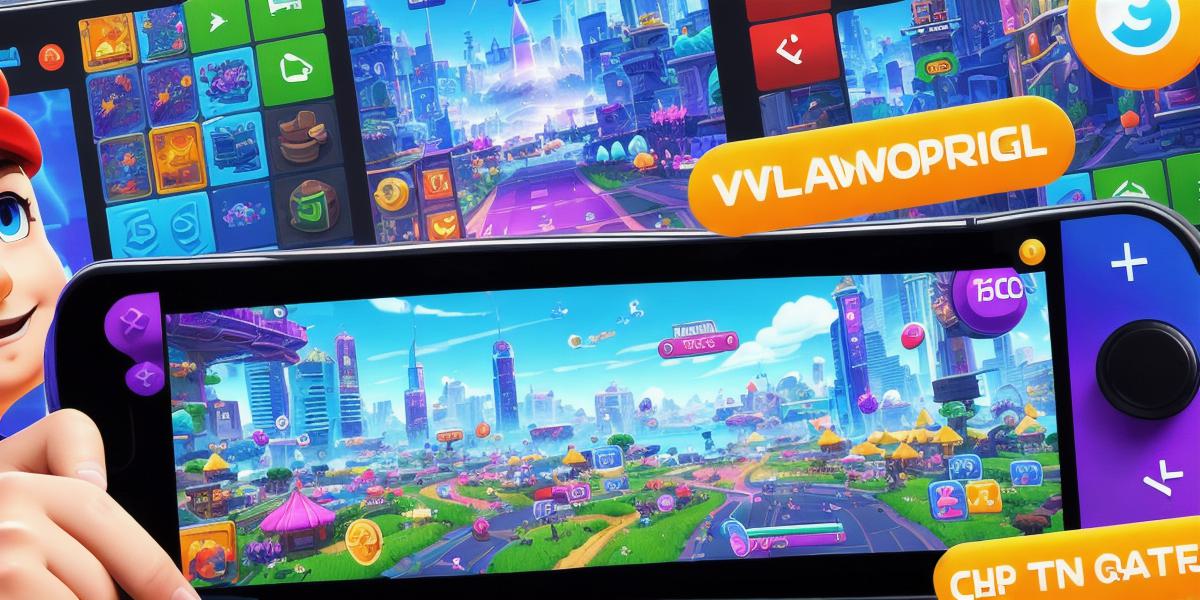Mobile games have revolutionized the gaming industry, offering convenience, accessibility, and endless entertainment to millions of users worldwide. In this article, we’ll explore some fascinating facts about mobile games that can inspire and motivate developers to create engaging experiences for their audiences.
- 1. Mobile Games are a Global Phenomenon: With over 3.5 billion unique smartphone users worldwide (Statista), mobile games have an enormous potential audience. In 2021, the global mobile games market is projected to generate around $159.3 billion in revenue (Newzoo).
- 2. Casual Games Dominate the Market: According to a report by Sensor Tower, casual games accounted for approximately 64% of all mobile game downloads and 70% of total consumer spending across both iOS and Google Play store in Q1 2021 (Sensor Tower).
- 3. Hyper-Casual Games are On the Rise: Hyper-casual games, which are simple and easy to learn, have become increasingly popular due to their addictive nature. In 2020, hyper-casual games accounted for approximately 45% of all mobile game downloads (Sensor Tower).
- 4. Augmented Reality (AR) and Virtual Reality (VR) are Gaining Traction: Mobile AR and VR games have shown significant growth in recent years, offering immersive experiences that blur the lines between reality and gaming. For instance, Pokémon Go, a location-based AR game, has amassed over 650 million downloads since its launch in 2016 (Sensor Tower).

- 5. Mobile Games Foster Social Interactions: Mobile games often include social features that enable players to connect and compete with each other, fostering friendships and building communities. For example, Clash of Clans has over 500 million registered users (SuperData Research), who engage in clan wars, collaborate on tasks, and trade resources.
- 6. Esports and Mobile Gaming: The esports industry has embraced mobile gaming with open arms, hosting tournaments for popular games like Fortnite and PUBG Mobile. In 2019, the global esports market was worth approximately $1.1 billion, with mobile games accounting for around 38% of that figure (Newzoo).
- 7. Continuous Innovation: Mobile game developers are always pushing the boundaries with new technologies and gaming experiences.
For example, Niantic’s AR game, Harry Potter:
Wizards Unite, uses real-world locations to create a magical adventure, while Virtual Reality (VR) games like Job Simulator for Google Daydream offer immersive experiences.

- 8. Monetization Strategies: Mobile games employ various monetization strategies such as in-app purchases, subscriptions, and ads. For instance, Candy Crush Saga generates revenue primarily through in-app purchases and ads (SuperData Research).
- 9. Personalized Gaming Experiences: Mobile game developers are increasingly focusing on creating personalized gaming experiences for their users, using data analysis to tailor content and advertisements based on user preferences (Newzoo).
- 10. Cross-Platform Integration: With the rise of cross-platform integration, players can now seamlessly transition between mobile, console, and PC games, enabling them to continue their progress and interact with friends regardless of the platform they are using.
In conclusion, mobile games represent a vast, diverse, and ever-evolving market that continues to captivate audiences and push technological boundaries. As developers, embracing these interesting facts can inspire new ideas, refine game design strategies, and ultimately create engaging experiences for players.
